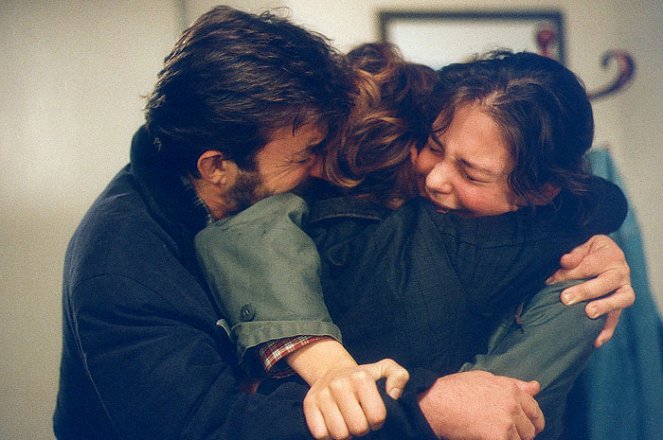Reżyseria:
Nanni MorettiScenariusz:
Nanni MorettiZdjęcia:
Giuseppe LanciMuzyka:
Nicola PiovaniObsada:
Nanni Moretti, Laura Morante, Jasmine Trinca, Renato Scarpa, Roberto De Francesco, Claudio Santamaria, Stefano Accorsi, Silvio Orlando, Luisa De Santis (więcej)Opisy(1)
Pokój syna opowiada o związkach międzyludzkich, o utracie kogoś bliskiego i o sposobach radzenia sobie z tym doświadczeniem. Dramatyzm wydarzeń łagodzony jest przez chwile subtelnego humoru. Film zachwyca autentycznością, psychologiczną prawdą i subtelnym doborem środków, za pomocą jakich opowiada o pokonywaniu bólu i o wychodzeniu z cierpienia. Moretti daje w swoim filmie nadzieję, że każdy ból kiedyś przemija, a życie może toczyć się dalej. (Gutek Film)
(więcej)Materiały wideo (1)
Recenzje (1)
Withdrawn into their shells, they communicate with each other only sporadically. They listen, but they don’t understand. They begin to realise what all they have been blind to only when their separation moves from the mental to the physical level. Their sadness seems endless. Nanni Moretti puts all of the weight on the viewer and without pressure leads us to go through the experience of loss together with the protagonists. The Son’s Room is built on carefully observed details of family life. The film’s uniqueness consists in its naturalness and its interest in the ordinary, in which we can see ourselves. The central tragedy is not overstated (as the Italians are glad to do), but only carefully examined. And there is no avoidance of lighter scenes, the exclusion of which would only serve to flatten the lives of the characters. We are not prepared far in advance for the crucial event of the narrative, which simply happens as a natural part of life. The film is dramaturgically enlivened by its division into two overlapping halves. The reprise of earlier shots, but now slower and sadder (a long following shot showing the interconnectedness of Giovanni’s personal and professional lives), forces us to make comparisons, to look for differences and to “find” what is missing. In the end, Giovanni also realises that the only reliable means of filling the gaps is probably (probably, because the ending, with the characters going their separate ways, is ambiguous) not the rules of psychoanalysis, but time, which never stops flowing through all of the comings and goings of his fellow humans. 85%
()
Galeria (8)
Photo © Alliance Atlantis Media 2002


